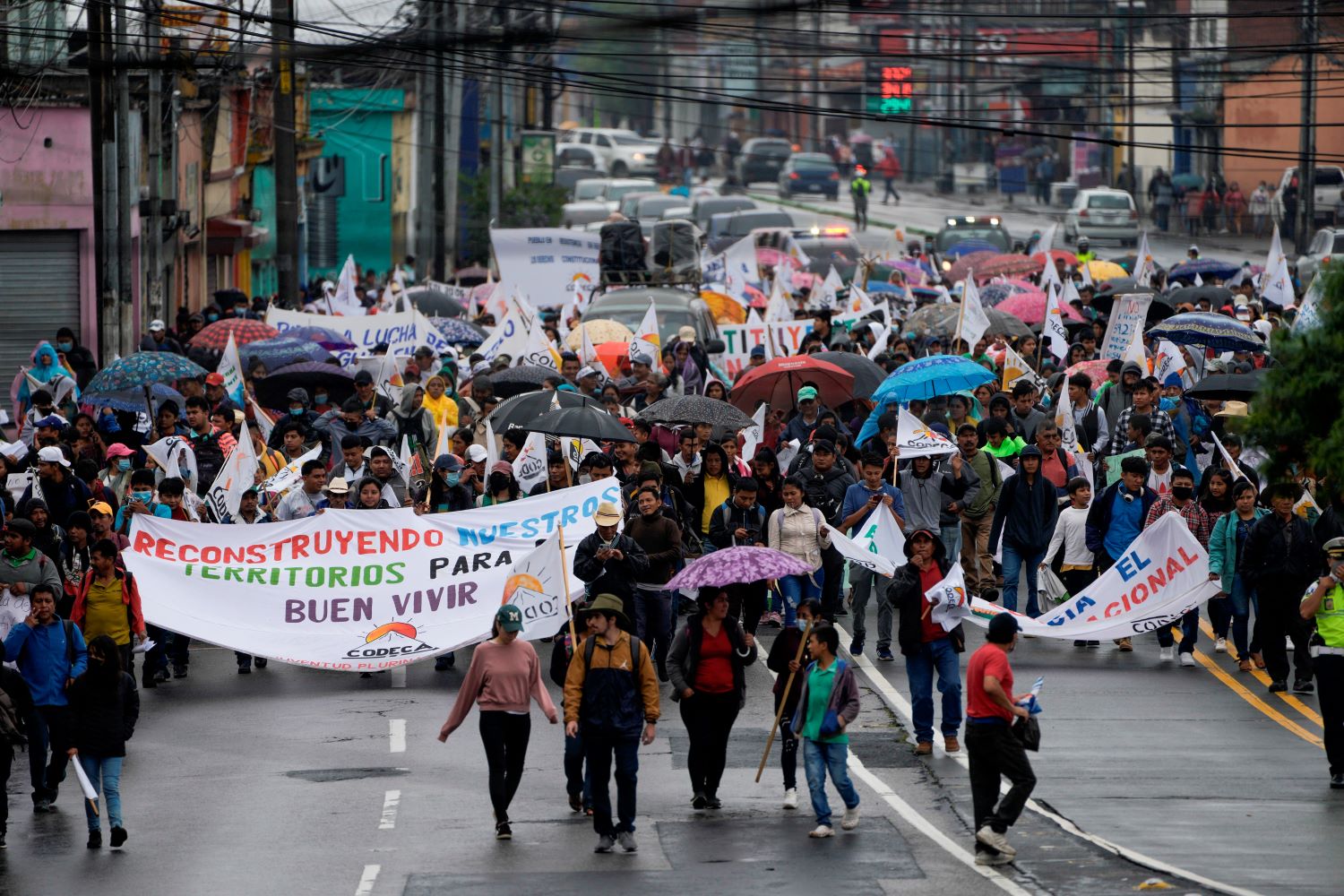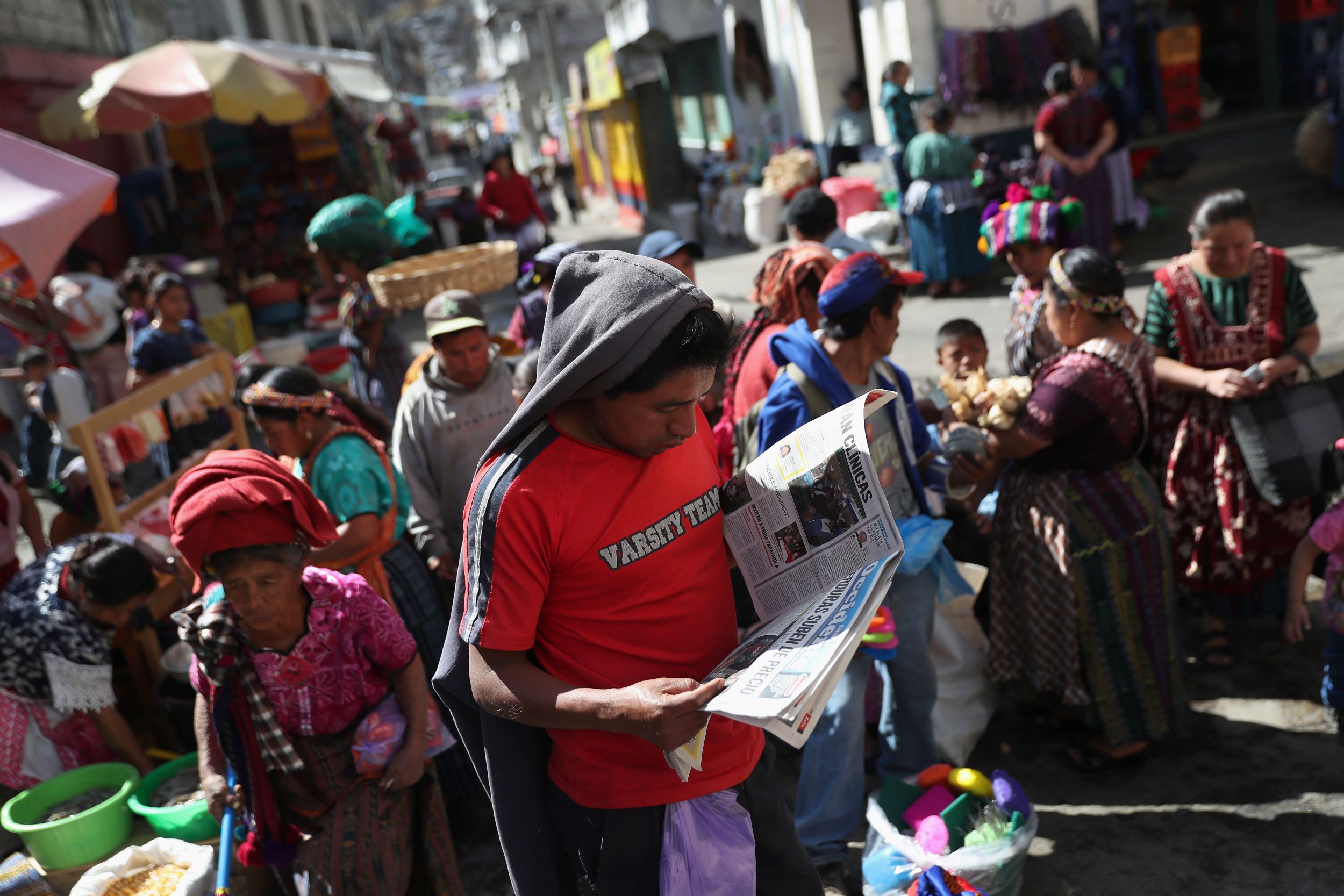The media in Guatemala has a responsibility to demonstrate how corruption affects people’s human rights
In Guatemala, corruption has been one of the main topics on the media agenda in the last few years. Despite the coverage, however, it has not engaged public interest and outrage - there are no protests and few are using the ballot box to express their dismay. So I wonder if this specific news coverage promotes cynical or tolerant attitudes towards corruption.
Last year, I worked on an NGO research project examining what sorts of corruption were most tolerated and accepted by people in Guatemala. We conducted interviews with opinion leaders, carried out a content analysis of the leading media outlets and developed focus groups with people from the urban area.
It was an exciting moment because I was able to compare discourses between members of different political parties, civil society organisations, journalists, politicians and company owners. We presented several corruption cases to these people and asked them to tell us how intolerable they found these cases to be. As we expected, some instances were more tolerated than others. The interesting point was that people seemed more ready to tolerate an act of corruption when they couldn't explain the consequences of the specific act of corruption.
Another interesting finding was to do with the media coverage of corruption. In the first 15 days of July 2022, we found 208 references to corruption from 20 media outlets (radio, press, tv and digital). Of these, however, only 32 mentioned or explained the consequences of the corruption highlighted.
This lack of coverage about what effects corruption has means that news framing does present corruption as a public-interest issue that affects people's lives. In other words, journalism in Guatemala fails to link corruption with human rights, such as the right to education, health or water.
The consequences of corruption take work to calculate and explain. According to the United Nations, the total cost of corruption around the world is approximately 5 percent of global GDP (GDP). In 2019, the World Economic Forum calculated $1.26 trillion is lost to corruption in developed countries every year. That's more than the GDP figure for the Netherlands, for example.
These sorts of big numbers may not be so helpful in journalism because they don’t help us understand the human stories behind the consequences of corruption. Besides, this data can be questionable for its precision. These numbers may help to glimpse the magnitude of the problem, but they don’t answer more poignant questions. What does it mean? Who is being affected by corruption? And how is any particular individual or group being affected? Furthermore, corruption is not only about money; it could be political favours or nepotism, for instance. It could be the passing of laws to benefit a minister’s friend’s company - cronyism.
Sometimes the framing of corruption depends on who is involved: relevant politicians, companies or public figures. I recognise that personalised framing of public issues is a global tendency in the media, but I don't know if it is desirable, especially when it comes to acts of corruption. This type of coverage is what media scholars call the “politics of scandals”; it is not about understanding an issue, debating about it and finding a solution. It is more about corruption as a personalised problem that causes outrage in public opinion. Sometimes this outrage is visible through protests but focuses on a political figure, not a systemic problem. And I suspect that sometimes it is used to end the reputation of certain people rather than from a desire to reform a broken system.
It is for this reason that the media should make the consequences of corruption - in terms of how it affects human beings - the priority for coverage. Real people suffer its effects because it often involves public money and because these consequences represent the magnitude of a public issue.

Since ancient Greece, corruption has been seen by the repercussions it had within political systems. The political theorist from Chile, Camila Vergara, explains that the Greek etymology of corruption comes from deathora (διαφθορά) which is the destruction, decay and falling of a specific beginning. The author explains that corruption is a long-term process provoking governments to increase inequality by creating an undesirable form of government. So, if corruption has an effect relevant at the highest level of social organisation, why not talk about these consequences?
Second, the more complete information a citizen has, the more intolerable he or she will find corruption. In Brazil, for example, a study showed that when people were shown complete information about corruption, they condemned these acts, even if they sympathised with the ideologies of those involved in the acts of corruption. So, the more complete the information, the more positive its effect - and this involves explaining the consequences of corruption.
Third, it allows people to recognise the harm their actions may cause to an individual, group or society. The scholar Rasma Karklins researched how corruption was normalised in post-soviet countries. From all the findings, one that stands out is that in Latvia, mid-level entrepreneurs saw bribery as legitimate because they focused on the individual benefits of paying bribes rather than the consequences. Thus, if journalism shows what corruption does to people or society, it may be more effective in communicating why it is a relevant issue.
Fourth, consequences of corruption can be framed in terms of how much money is being lost, but, more importantly, it should be framed in terms of the people who are being affected by it. In other words, framing corruption from its consequences enables us to tell stories. Media research explains that narratives may provoke sympathy for the characters involved in the story and help to communicate moral dilemmas. This is desirable when it comes to promoting solidarity in society.
Other factors, such as who is responsible for corruption, the amounts of money lost to it, the types of corrupt transactions that take place are all relevant information for people to be given.
But only alongside an explanation of the context and consequences of corrupt actions will these provide a complete picture of why corruption is undesirable. I recommend that journalists ask these questions in order to be able to develop this full picture:
- How many people are affected by the act of corruption?
- Is it only one individual, group or the whole society who is affected?
- In what ways does the act of corruption affect people?
- What institutions are responsible for the consequences?
And although it is relevant to know if there is a specific amount of money involved, as far as I am concerned, stories tell more than data which is presented without context. So, the question will be, what does it mean for human beings if the world cost of corruption is approximately 5 percent of global Gross Domestic Product (GDP)? What are the stories of people who suffer the consequences of corruption?
How journalism frames corruption is crucial. Furthermore, it is important to talk about what the consequences of corruption really are. When a case of corruption grabs the media's attention, it is worth asking how many people are affected. What groups? In what ways? Complete coverage of corruption makes people aware of it and makes citizens more intolerant of these acts - less likely to shrug their shoulders and say “oh well, it was always thus”. I don't believe that the influence of the media is definitive on this topic; organised crime, different public and private institutions and organisations from civil society also play a role. However, a better understanding of how framing corruption affects public debate could help - at least a bit - to fight this global problem.
Jorge Sagastume is a media and communications specialist from Guatemala
The views expressed in this article are the author’s own and do not necessarily reflect Al Jazeera Journalism Review’s editorial stance














![Palestinian journalists attempt to connect to the internet using their phones in Rafah on the southern Gaza Strip. [Said Khatib/AFP]](/sites/default/files/ajr/2025/34962UB-highres-1705225575%20Large.jpeg)


























